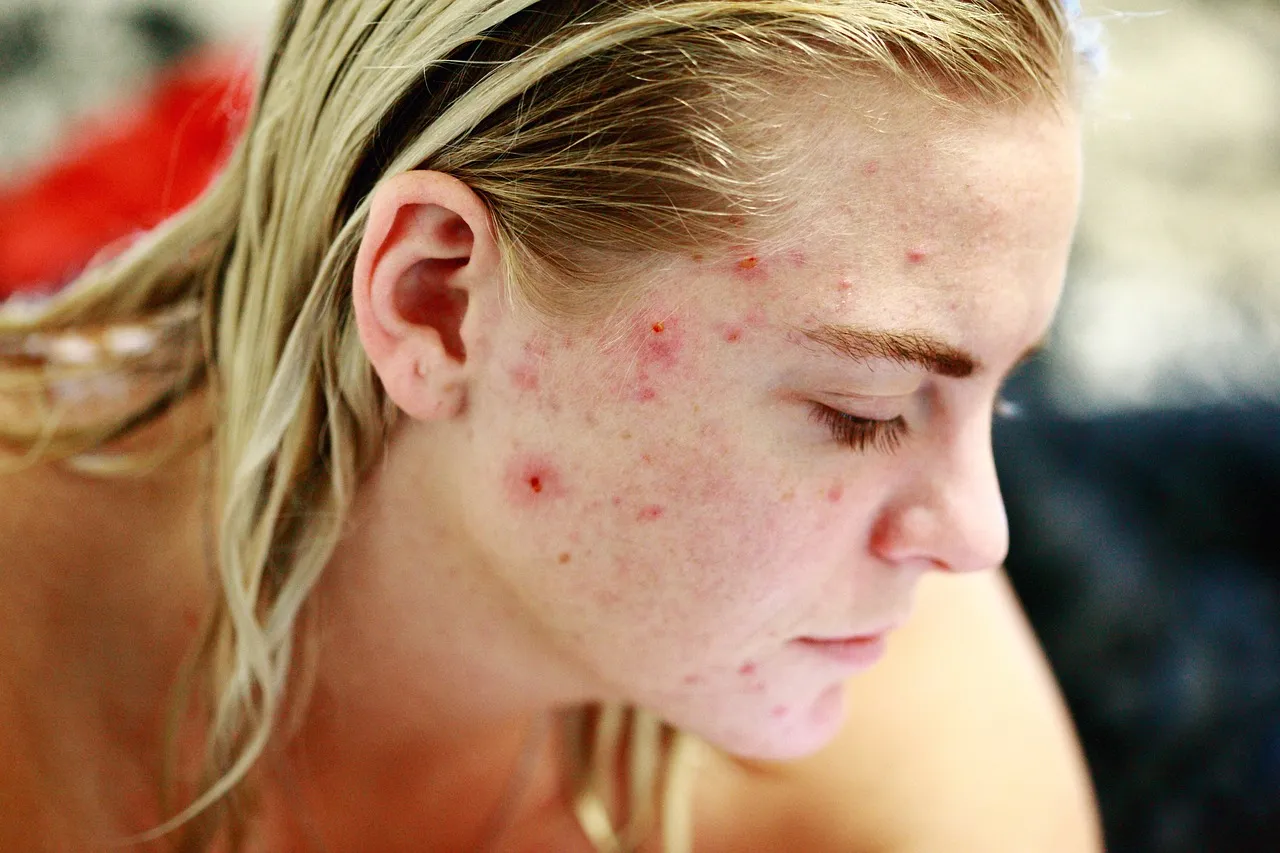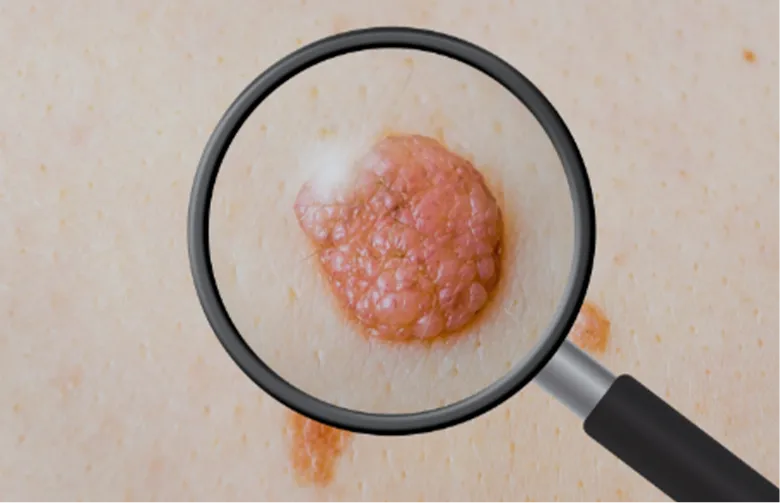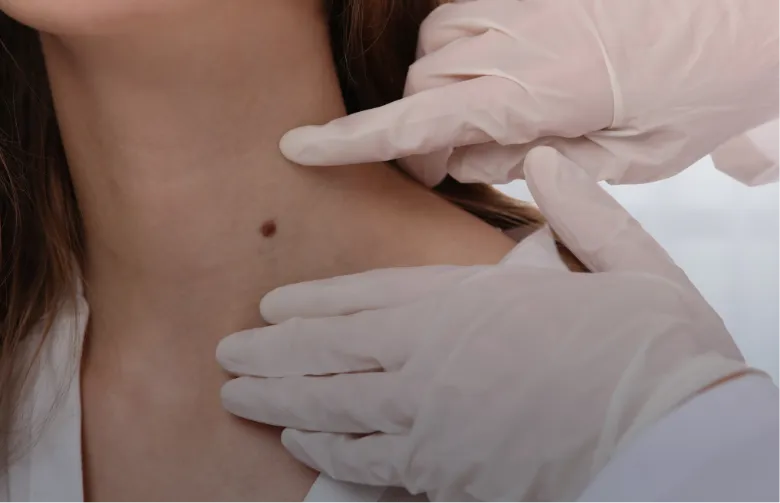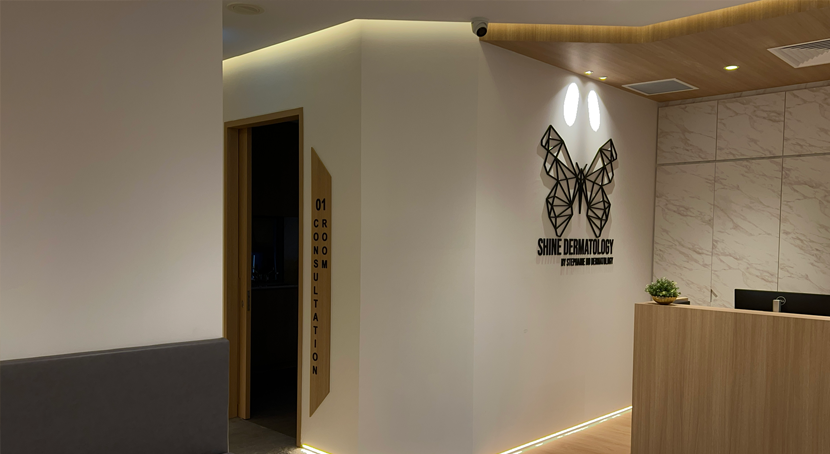Common Scalp Problems in Singapore and How to Treat Them
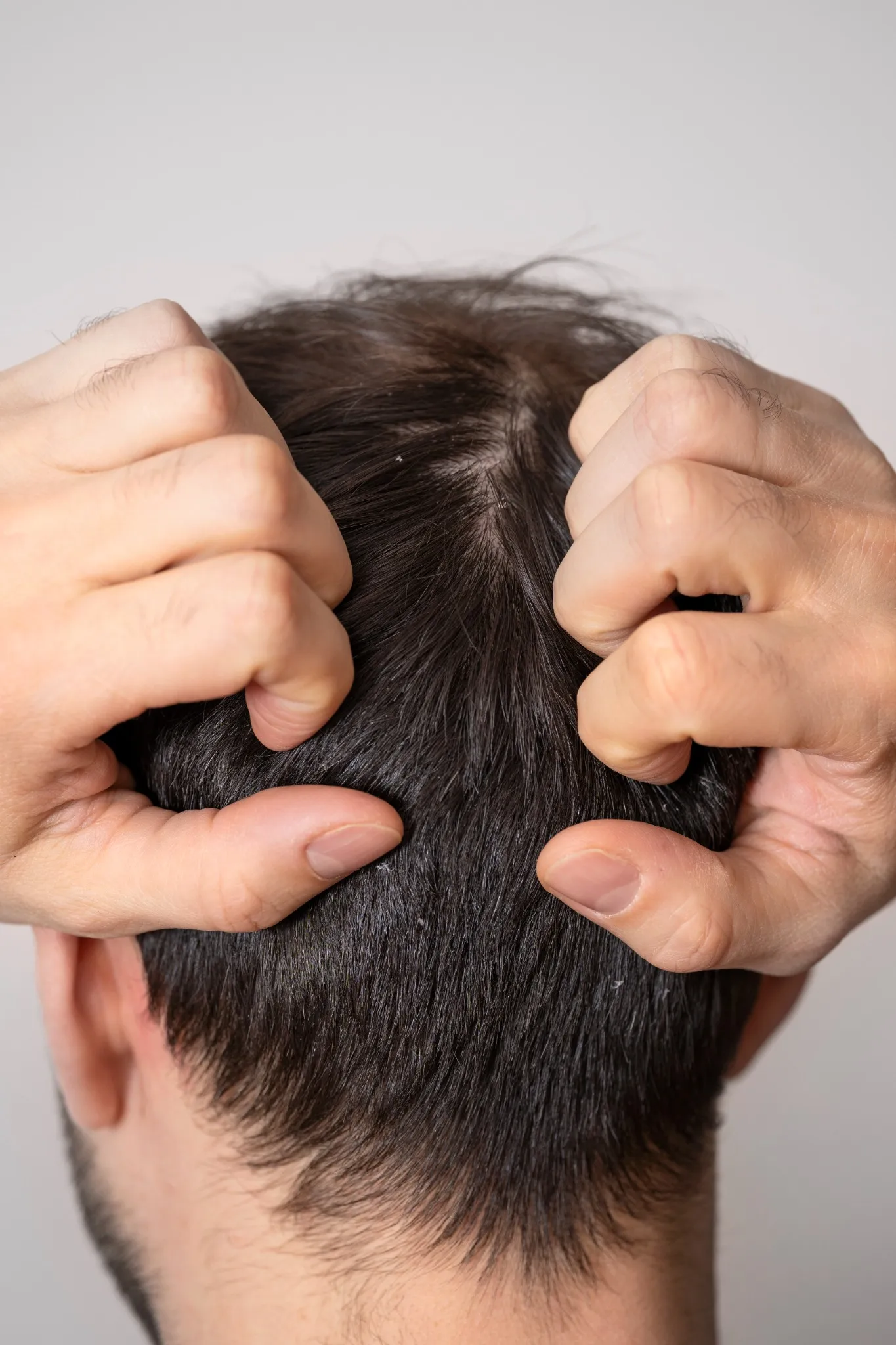
Having a healthy scalp is essential for maintaining lush, beautiful and healthy hair throughout. However, many Singaporeans experience scalp issues like dandruff, scalp acne, and sensitive or oily scalps. There are a number of reasons for this, including Singapore's hot and humid climate, busy and stressful lifestyles, and some common hair care habits.
There are many effective scalp treatments in Singapore and SHINE Dermatology provides various treatments. If you are experiencing any scalp problems, it is important to see a dermatologist to get a diagnosis and treatment plan.
Dandruff
Dandruff is a chronic scalp condition marked by itching and flaking of the skin on your head. It’s caused by a yeast-like fungus called Malassezia that feeds on the oils secreted by your hair follicles. Dandruff isn’t contagious or dangerous, but it can be annoying and embarrassing.
Symptoms
The hallmark symptoms of dandruff are:
- White, oily-looking flakes of dead skin on your scalp, hair, and shoulders
- Itchy, scaly scalp
- Red, greasy patches of skin
- Irritated, dry scalp
Dandruff, the dry flaky scalp that snows down on shoulders, is caused by seborrheic dermatitis. This chronic skin condition leads to itchiness, redness, and irritated skin that sheds white flakes. Dandruff is not just restricted to the scalp. It can also appear on the eyebrows, sides of the nose, and ears.
The culprit behind dandruff is thought to be twofold: overactive oil glands and sensitivity to a yeast called Malassezia. Malassezia naturally lives on everyone's skin. But some unlucky folks have skin that overreacts to this yeast, becoming inflamed and shedding skin cells at a faster rate. While dandruff itself is harmless, it can cause social woes for those trying to keep their shoulders snow-free.
Treatment
Since dandruff often recurs, managing it requires both active flare-up treatment and maintenance care for best control. Patients will be taught regimens tailored to their symptoms.
Here are some treatments you can consider:
Medicated shampoos - Anti-fungal and tar-based shampoos can help reduce flaking and itching from flare-ups. Using these regularly keeps symptoms in check.
Steroid scalp treatments - Prescription steroid lotions, used with medicated shampoos, quell inflammation and flakes.
Anti-fungal and steroid creams - For the face and ears, apply these ointments to control redness and flaking in affected areas.
It’s important to use anti-dandruff shampoos consistently as directed, usually 2-3 times a week, to control dandruff. Make sure to really massage the shampoo into your scalp and leave it on for 5 minutes before rinsing thoroughly.
Natural remedies like tea tree oil, coconut oil, and apple cider vinegar can also help improve dandruff by moisturising the scalp and reducing yeast overgrowth.
Improving scalp health through gentle brushing, scalp massages, and reducing stress can prevent dandruff flare-ups as well.
Scalp Acne
Like other areas of skin, your scalp has pores that can get clogged with oil and dead skin cells. This causes red, itchy acne pimples to develop on the scalp. Scalp acne is quite common, especially in teens and young adults.
Symptoms
The signs of scalp acne include:
- Small red bumps or pustules on the scalp, sometimes with pus
- Tenderness, pain, and itching of affected area
- Flaking around acne lesions
- Hair loss if acne is severe
Scalp acne may be made worse by excess oil production, product buildup, stress, and hormones.
Treatment
Keeping your hair and scalp very clean is key for treating scalp acne. Use a gentle shampoo to wash your hair 2-3 times a week and avoid heavy styling products that can clog pores. An exfoliating scalp scrub used 1-2 times a week can also help clear away dead skin and product residue.
For stubborn scalp acne, your dermatologist may prescribe topical acne medications like benzoyl peroxide, retinoids, or antibiotics. Oral antibiotics or birth control pills may be recommended for hormonal acne.
Natural remedies like tea tree oil, apple cider vinegar rinses, and aloe vera gel can help soothe inflammation and prevent infection of scalp acne lesions. Avoid picking or popping pimples which can lead to further irritation.
Sensitive Scalp
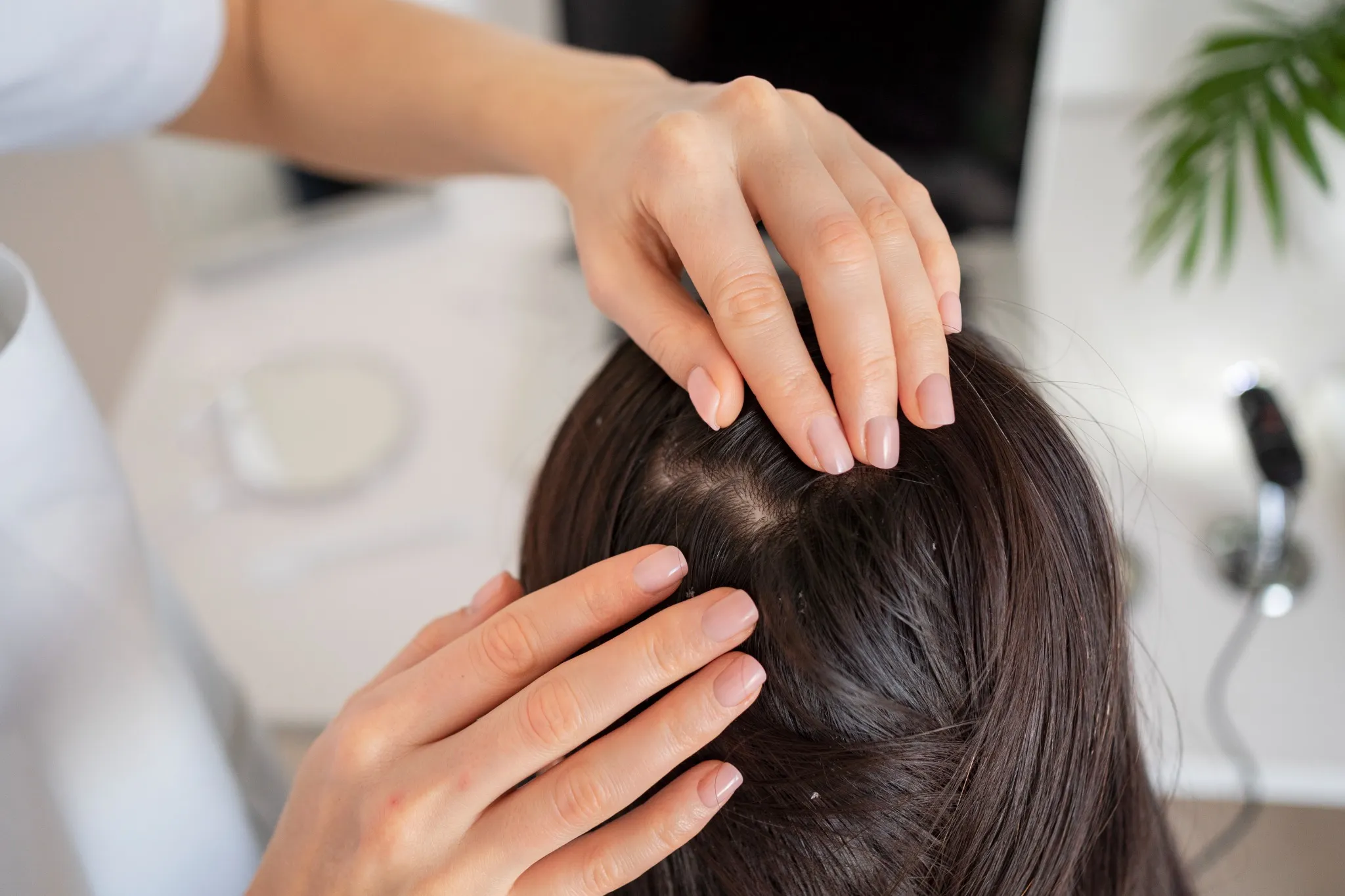
Some people have very delicate skin on their scalps that is easily irritated by chemical ingredients, environmental factors, and heat styling. Having a sensitive scalp can cause redness, itching, stinging, and discomfort.
Symptoms
Signs of a sensitive scalp include:
- Scalp sensitivity or pain when brushing or touching the head
- Tingling, burning, or itching sensation of the scalp
- Redness and inflammation
- Increased irritation from hair care products
- Scaly or flaky patches
Sensitive scalps can be genetic but may also result from damage to the skin barrier. Harsh shampoos, over-washing, and excessive heat styling can compromise scalp and hair health. Skin conditions like eczema or psoriasis can also contribute to sensitive scalps.
Treatment
Be gentle with your sensitive scalp. Wash hair infrequently with a soothing, fragrance-free shampoo. Use warm, not hot, water to rinse your hair. Avoid scrubbing or using rough brushes/combs. Minimise the use of potential irritants like hairsprays, dyes, and heated tools.
Try switching to more natural hair products with ingredients like aloe, chamomile, green tea, oatmeal, and jojoba oil. These can calm and hydrate a sensitive scalp.
If your sensitive scalp is very inflamed, your doctor may prescribe a topical steroid cream to use for a short period. This helps relieve irritation and itch.
Oily Scalp
An oily scalp occurs when your hair follicles produce excess sebum. This gives the scalp a greasy, unclean look and feel. Oily scalps are also more prone to dandruff as the extra sebum feeds fungus growth.
Symptoms
- Slick, greasy feel of the scalp
- Visible oiliness along the hairline and roots
- Lank, limp hair that appears flat and dirty
- Rapidly developing dandruff and itchiness
- Frequent need to wash hair
Oily scalps affect those with naturally very oily skin. Hormonal changes, humidity, hair products, and habits like head massages can also increase oil production.
Treatment
Manage an oily scalp by washing hair more frequently with a gentle shampoo. Look for ingredients like salicylic acid, lemon, charcoal, and tea tree oil specifically formulated for oily scalps.
Using a clarifying apple cider vinegar rinse once a week helps remove excess sebum and product buildup. Just dilute ACV with water and rinse it through your hair after shampooing.
Switch to oil-free, volumizing hair products that won’t contribute to greasiness. Avoid heavy conditioners and styling creams on your hair and regular scalp treatments as well.
Exfoliating and washing your hair and scalp 1-2 times a week with a special scrub helps keep pores clear and prevents excess oil buildup. Using blotting papers or dry shampoo at roots can help absorb oil between washes.
Eczema
Eczema is a common inflammatory skin condition that can occur anywhere on the body, including the scalp. Eczema causes dry, red, extremely itchy patches that may ooze and crust over when scratched. Scalp eczema is often triggered by stress, irritants, allergies, and weather changes.
Symptoms
Signs of scalp eczema include:
- Extremely itchy, inflamed areas on the scalp
- Red, rough, scaly patches that may weep and crust over
- Dandruff-like flaking and scaling
- Visible swelling and inflammation
- Hair loss if severe
Eczema flare-ups cause scalp irritation that make hair styling and washing painful. Intense itching and scratching also leads to infection risks.
Treatment
Avoid triggers like harsh soaps, weather changes, and stress that exacerbate scalp eczema. Use a very gentle, fragrance-free shampoo and lukewarm water to wash hair. Comb hair gently with a wide-toothed comb to minimise irritation.
Applying cold compresses can relieve scalp itching and inflammation. Topical corticosteroid creams prescribed by your dermatologist also help control flare-ups.
Keep scalp moisturised by massaging in coconut oil, aloe vera gel, or olive oil. Stay hydrated and minimise scratching to prevent infections.
Oral antihistamines provide relief from eczema itching. For severe cases, immunomodulator medications may be prescribed to reduce overall inflammation.
Psoriasis
Psoriasis is an autoimmune condition that speeds up skin cell growth, causing a scaly, thick buildup on the skin. When it develops on the scalp, it can cause severe flaking and irritation. Scalp psoriasis may initially look like severe dandruff but with treatment, tends to improve more slowly.
Symptoms
Signs of scalp psoriasis include:
- Red, itchy patches with thick silver-white scale buildup
- Dandruff-like flaking, sometimes severe
- Dry, cracked skin that may bleed if severe
- Scalp tenderness and tightness
- Hair loss in affected areas
Psoriasis flare-ups can be triggered by stress, skin injuries, infections, weather changes and certain medications.
Treatment
Using a prescribed medicated shampoo can help soften and remove psoriasis scale from the scalp. Salicylic acid or tar-based shampoos work well for mild cases. Steroid shampoos and scalp solutions are used for more severe scalp psoriasis.
Your doctor may also prescribe systemic medications like oral immunosuppressants, retinoids or biologics to reduce inflammation. Topical corticosteroids, vitamin D analogues, and anthralin can help treat stubborn plaques.
Moisturising with aloe vera, coconut oil, and olive oil soothes itching and prevents cracking. Light therapy and reducing stress levels also help control flare-ups. Avoid picking at scalp lesions.
Hair Loss Conditions
Hair loss comes in many forms, with causes ranging from genetics to stress. While some hair loss is permanent, solutions do exist to encourage new growth. Early intervention is key, as treatments like medications, laser devices, regenera activa and scalp microneedling perform best when started in the initial stages.
Common hair loss conditions include androgenic alopecia (male and female pattern baldness), alopecia areata (an autoimmune disorder), and telogen effluvium (temporary shedding caused by stress).
A customised regimen tailored to your specific degree of thinning hair can effectively restore your hairline and fullness. To learn more on the facts of hair loss and how to get ahead of it before significant baldness sets in, read the full article on “5 Things You Wish You Knew About Hair Loss and Scalp Treatment”.
When to See a Dermatologist
While many minor scalp issues can be managed at home, visit your dermatologist if you experience:
- Chronic, severe, or painful flaking or itching
- Hair loss in patches or large amounts
- Skin lesions, bleeding, or discharge
- Scalp swelling, oozing, or redness
- No improvement with over-the-counter treatments
- Hair loss impacting your daily life
Dermatologists can properly diagnose scalp treatment and provide prescription treatments for various stubborn scalp conditions.
Seek Professional Treatment at Shine Dermatology
For those struggling with stubborn, chronic scalp conditions, the expert dermatologists at Shine Dermatology can provide relief.
We offer cutting-edge treatments to address hair and scalp treatment, for all kinds of scalp problems, including:
- Regenera Activa - This treatment harvests autologous hair micrografts for their regenerative properties to stimulate thicker hair growth in thinning areas.
- Scalp Microneedling - Microneedling creates tiny channels in the scalp to boost penetration of regenerative serums and growth factors, improving hair growth and maintenance.
Our goal is to deliver personalised, effective treatments to meet your unique, scalp care and hair needs. We use scientifically-proven techniques and advanced technology from the US and Europe.
You can trust our dermatology specialists to treat your scalp issues with the utmost care, safety, and privacy. Contact Shine Dermatology today to find relief from stubborn scalp problems.
